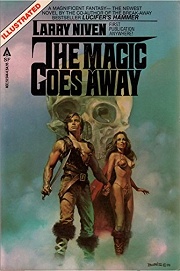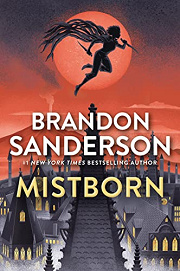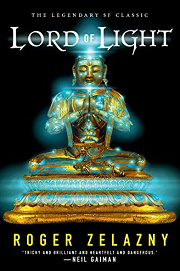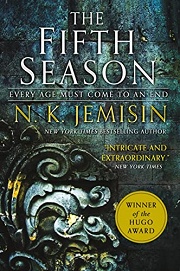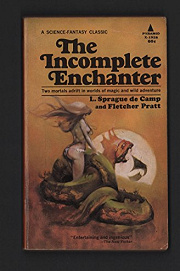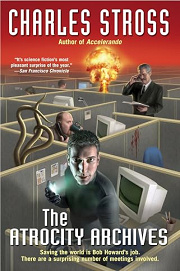Share your thoughts in a quick Shelf Talk!
The Magic Goes Away by Larry Niven
In a fading world where sorcery draws from a dwindling source, a hard-nosed wizard races to learn why spells are failing—and what price might restore their power. Across ancient ruins and uneasy city-states, rival mages and desperate rulers vie for the last reserves of wonder. The Magic Goes Away asks what happens when myth meets scarcity, blending bold ideas with adventure and a haunting sense that even miracles have limits.
Have you read this book? Share what you liked (or didn’t), and we’ll use your answers to recommend your next favorite read!
Love The Magic Goes Away but not sure what to read next?
These picks are popular with readers who enjoyed this book. Complete a quick Shelf Talk to get recommendations made just for you! Warning: possible spoilers for The Magic Goes Away below.
In The Magic Goes Away, did you enjoy ...
... a rigorously limited, resource-based magic system where power can run out?
Mistborn: The Final Empire by Brandon Sanderson
If what grabbed you in The Magic Goes Away was the Warlock’s realization that mana is finite—and the way the Warlock’s Wheel literally drains the world’s power, even hastening Atlantis’s fall—you’ll love Allomancy’s strict, consumable rules. In Mistborn, Vin and Kelsier burn specific metals for precise effects, and when the metals are gone, so are the powers. That same crunchy cause-and-effect you enjoyed—clever planning, exploiting limitations, and paying real costs—drives the plot as the crew engineers a rebellion against the immortal Lord Ruler.
... the science-dressed-as-sorcery vibe—devices and principles masquerading as magic?
Lord of Light by Roger Zelazny
If you were fascinated by how the Warlock treats magic like engineering—building the Warlock’s Wheel and calculating mana budgets—Zelazny’s gods will scratch the same itch. In Lord of Light, Sam (Mahasamatman) uses advanced tech—mind transfers, force-fields, and godlike augmentations—to challenge a pantheon that passes technology off as divine magic. It’s the same thrill of demystifying the wondrous that you felt when the Warlock quantified mana, now refracted through epic duels and audacious techno-myth.
... the catastrophic costs of misused power and a civilization running on borrowed time?
The Fifth Season by N. K. Jemisin
If Atlantis’s doom and the world’s thinning mana struck you as a haunting parable of overuse, The Fifth Season delivers that theme at tectonic scale. Essun’s orogeny can literally fracture continents, and every use of power has social, ecological, and moral fallout. As with the Warlock’s fateful experiment with the Wheel, attempts to control and stockpile energy here carry devastating, civilization-shaping consequences—only Jemisin follows those costs through families, empires, and ages.
... mythic history reimagined with rational rules and a tinkering, problem-solver’s approach to magic?
The Incomplete Enchanter by L. Sprague de Camp
If you enjoyed how Niven meshes Atlantean legend with a worked-out theory of mana—and the Warlock’s practical, experimenter’s mindset—Harold Shea will feel like a kindred spirit. In The Incomplete Enchanter, Shea uses symbolic logic to enter Norse and other mythic worlds, then survives by applying rational rules to fantastical systems. It’s the same delight of watching a clever mind treat magic like a solvable problem, with mythology serving as both playground and proving ground.
... the cool, quasi-scientific explanation of spells and the bureaucratic consequences of using them?
The Atrocity Archives by Charles Stross
If the Warlock’s Wheel and the calculated draining of mana made you appreciate magic as hazardous engineering, meet Bob Howard. In The Atrocity Archives, computational thaumaturgy turns math into summoning—where a botched proof can end the world. Like the Warlock’s hard lessons about resource limits and unintended collapse (Atlantis, anyone?), Stross’s universe explores how organizations manage, ration, and survive the use of power that obeys terrifyingly precise rules.
Unlock your personalized book recommendations! Just take a quick Shelf Talk for The Magic Goes Away by Larry Niven. It’s only a few questions and takes less than a minute.
